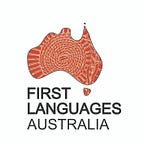Case study — School programs and Yawuru language revival in Broome, Western Australia
Informed by Mabu Yawuru Ngan-ga for Global Lessons: Indigenous languages and multilingualism in school programs
The Yawuru language is spoken in and around the town of Broome in the west Kimberley, a town which celebrates its rich cultural diversity and heritage. The urgency for Yawuru to regenerate their language was highlighted during the Native Title trial when the last three fluent speakers of Yawuru, all very old people, gave critical evidence in court. The Mabu Yawuru Ngan-ga Language Centre was established following the registration of the Yawuru Native Title Agreement in 2010. The Yawuru quest to make sure language is revived and passed onto the next generations, has the full backing of the community, both old and young people. The language program has not relied on linguists but is based on a range of Yawuru people working closely with their old people. It has been a grassroots community approach to language revitalisation.
Mabu Yawuru Ngan-ga developed partnerships with schools and early childhood programs to teach Yawuru language to children. The Yawuru community was fortunate in that it had some trained teachers who were also speakers and were initially able to support the demand. Since establishment Mabu Yawuru Ngan-ga, the Yawuru Language Centre in Broome, has been overwhelmed with requests for the supply of Yawuru language teachers for the provision of school-based language programs. By 2015, Yawuru programs operated at several Broome schools, as well as community classes at the language centre.
In addition to teaching, Mabu Yawuru Ngan-ga undertakes diverse language revival activities, including resource production, dictionary work and creation of written materials. The focus of the program is on language use.
After spending a number of years dedicated to running school-based programs, there was a growing realisation that teaching language one hour a week was not producing a community of language speakers. Furthermore, the available language speakers were working as teachers in beginner level learning programs across schools and thus were not getting sufficient opportunity to talk to each other in Yawuru, to strengthen and maintain their own language skills. It was decided that using Yawuru and building the language skills of individual community members needed to be prioritised over teaching language to other adults.
In 2016 Mabu Yawuru Ngan-ga set a target of having 20 conversational Yawuru speakers by 2021. From this critical mass, the community plan to expand the number of Yawuru speakers to ensure that the language plays a critical role in Yawuru nation-building and cultural security for generations to come.
The centre looked at language revival programs from around the world and combined the elements most relevant to them in a program called Walalangga Yawuru Ngan-ga. The aim of the immersion program is to rebuild the daily use of Yawuru at home, at work and in the community, and to facilitate intergenerational language learning.
The course is open to any Yawuru person, regardless of language ability and age; with participants being selected through an Expression of Interest process. Those successfully recruited are then employed in the two year program.
The participants come to the language centre for three hours, Monday to Friday. These disciplined periods of time are set to focus on speaking Yawuru across different aspects of daily life such as meals, recreation and chores. The learning techniques are reinforced through collective activities within families, work colleagues and friendship circles.
The program commenced in late 2016 and has seen success beyond the group’s initial expectations, including stimulating conversations between adult participants and children who had participated in school programs but had not previously been known to use the Yawuru they had learnt.
Course completion will lead to a certificate in Yawuru Language. Mabu Yawuru Ngan-ga is in the process of investigating how to attain accreditation. Graduates will be expected to continue to use and grow their Yawuru language skills and support other language learners where possible.
It is anticipated that graduates of the program will have opportunities to work in tourism, land management or other industries; and that some may continue in their studies to become school language teachers. The Native Title Body, Nyamba Buru Yawuru, has work opportunities for fluent Yawuru speakers, and is expecting this demand to continue to grow.
Lessons from the Yawuru case study:
· Communities can prioritise language revitalisation goals and strategies, particularly in the face of limited resources
· Evaluating progress, planning for strategic use of resources and goal setting are important aspects of community language revitalisation
· Developing fluent speakers requires planning, commitment by and resourcing for a group of teachers and learners, and the identification of appropriate strategies
· Setting and achieving goals and the willingness to stop, review and change plans as required is important for community language revitalisation programs.
Reference
Mabu Yawuru Ngan-ga (2016). Walalangga Yawuru Ngang-ga language program. Nyamba Buru Yawuru. Retrieved September 26, 2017, from http://www.yawuru.com/language-centre/
